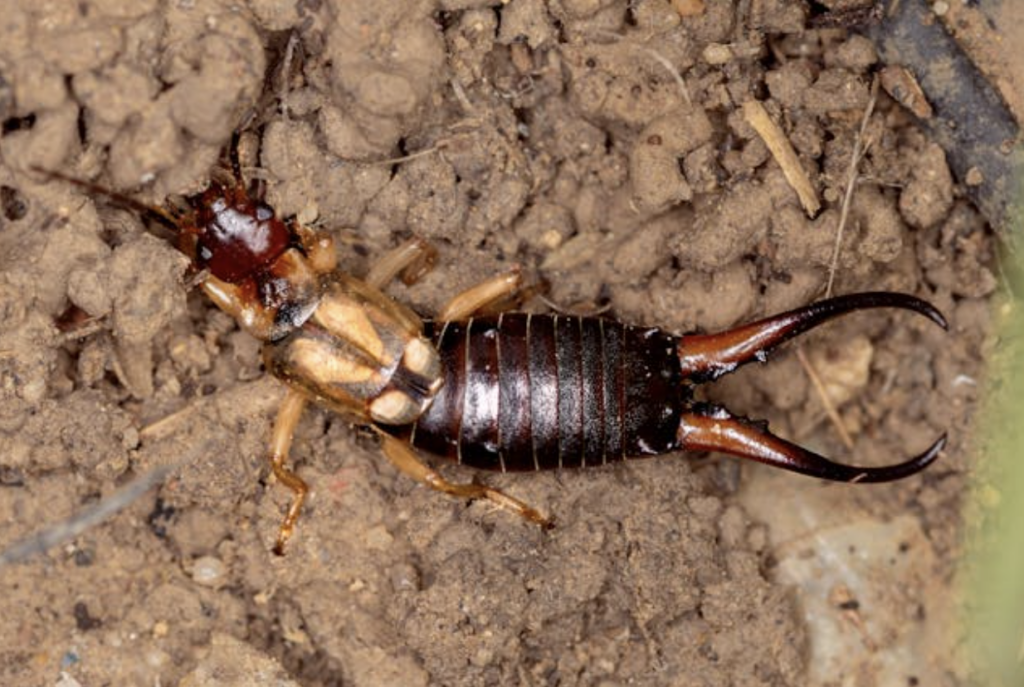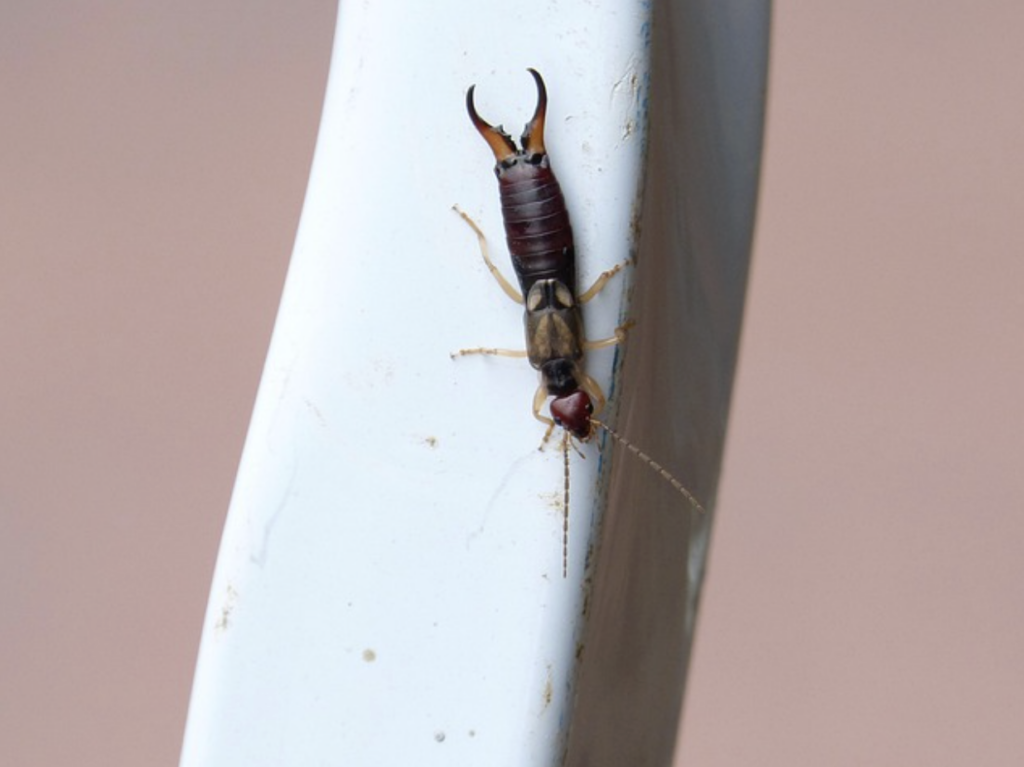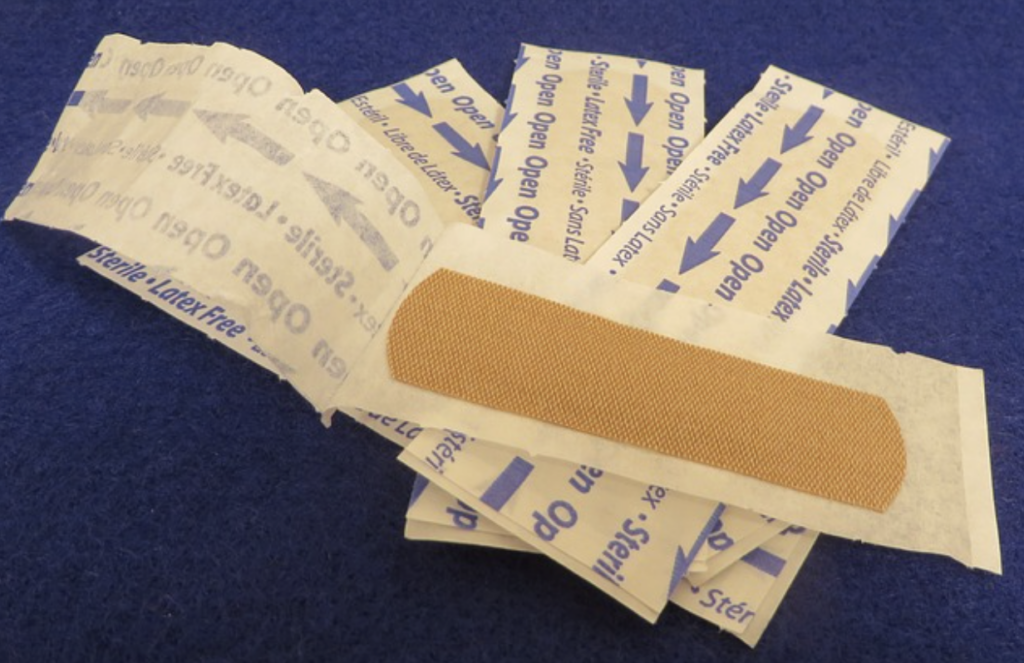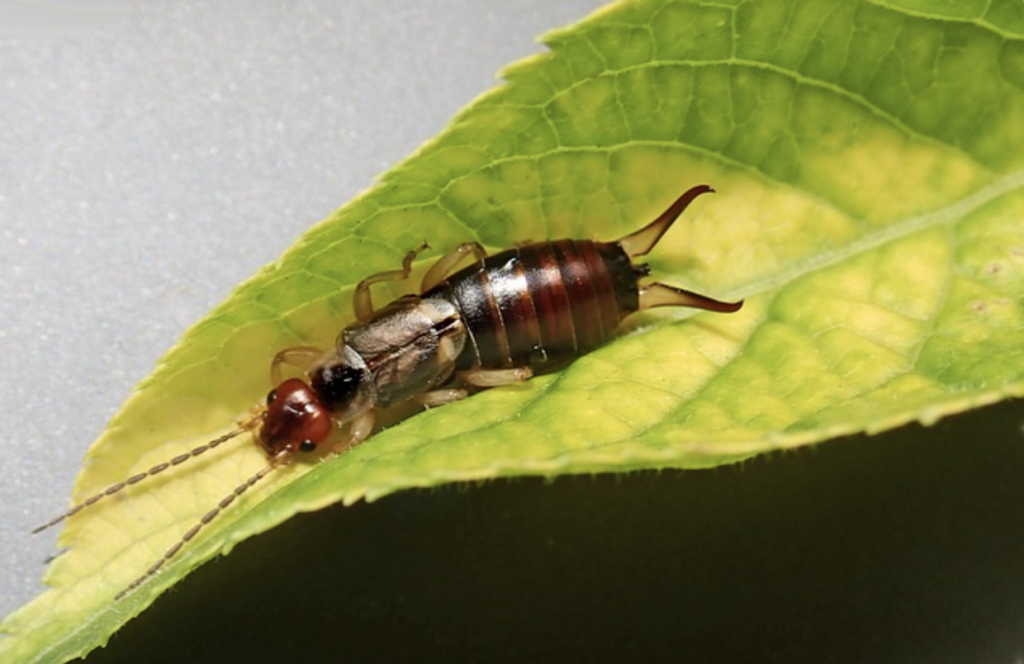Despite their name, earwigs won’t crawl into your ear, but these pests can make anyone do a double-take. Just take a look at those sharp pinchers! It’s no surprise that these pests have a less-than-unsettling reputation. But do they actually bite? Are they out to pinch people, or is their tough-guy appearance just for show?
Before you start panicking, let’s break down the truth about earwig bites and what you should do if you notice a few too many hanging around your home.
What are Earwigs?

Earwigs are instantly recognizable thanks to the large pinchers situated at the end of their abdomens. These forceps may look intimidating, but they’re mainly used for defense, catching small prey, and even sparring with other earwigs.
While they also have wings neatly folded against their backs, they’re not the type of insect to fly and zip across the room. In fact, earwigs prefer to crawl, staying low to the ground as they search for food and moisture.
There are thousands of earwig species worldwide, but only a handful ever make their way indoors. According to Pennsylvania State University, about five species are known for sneaking into homes, with the European earwig being the most common culprit in the United States.
Typical Earwig Diet
Outdoors, earwigs stick to a relatively normal diet. Iowa State’s Extension program reports that earwigs will dine on plants, insects, or other decaying matter. While they aren’t the most destructive garden pests, a large infestation can cause noticeable damage to your fruits, vegetables, and flowers.
Their feeding habits can be tricky to tell apart from other insect damage, so keep an eye out for jagged, irregular patterns on foliage.
Indoors, earwigs aren’t picky eaters. They’ll scavenge for food in your pantry, nibbling on any unsealed groceries they can find. While they may snack on wayward insects, they’re just as likely to go after grain products, flour, bread, cookies, and even crumbs left on your counters. If food is accessible, earwigs won’t hesitate to help themselves!
Will an Earwig Bite?

With their oversized pincers and appetite for live prey, earwigs definitely look like they mean business. But do earwigs really bite?
So, here’s the good news. Earwigs aren’t out to get you! While they may look spooky, their mouthparts are too small and weak to actually break through your skin. Plus, they’re non-venomous, so if they do manage to nip at your skin, they won’t leave behind any nasty side effects.
Rather than using their mouths, earwigs rely on their sharp pincers to defend themselves. These forceps are their primary defence against predators like spiders and ants. They’re not aggressive to humans and will only attempt to pinch you if they feel threatened.
So, while these pests may look intimidating, an earwig bite shouldn’t be on your radar. These pests would rather run away and hide than pick a fight.
Treating an Earwig Bite or Wound

If you fall victim to an earwig bite or its sharp pinchers, there’s no need to worry about serious complications.
Their pincers might leave behind red marks, but they usually don’t break the skin. In rare cases, a deeper pinch could cause small puncture wounds or slight bleeding.
But, if you have a bad run-in with an earwig, treating a bite or pinch is simple. To treat your wound, keep the area clean and avoid scratching the injuries. If the pinchers broke your skin, try to apply an antibacterial cream to aid in healing. While earwigs don’t spread diseases, any open wound can become irritated or infected if not properly cared for.
How to Get Rid of Earwigs

While an earwig bite isn’t something to worry about, no one wants these nuisance pests living on their property! To safeguard your plants and pantry, take a look at these tips and take the first steps at eliminating an earwig infestation. Spray your Garden
While earwigs can lend a hand in the garden by eating annoying pests like aphids and mites, they may still cause trouble by munching on your prized plants. But that doesn’t mean you have to deal with them longterm! Since earwigs are nocturnal, the best time to tackle an infestation is in the evening when they’re most active.
There are plenty of ways to get rid of earwigs, from store-bought pesticides to natural solutions. If you want to avoid harsh chemicals, try a homemade approach. Before spraying your plants, ensure that this mixture won’t cause any damage. If you know certain things will dismantle your garden’s hard work, use another approach to eliminate earwigs.
One easy option you can try at home is a rubbing alcohol and water spray. It’s an effective pesticide that can eliminate earwigs and other common garden pests. Start by mixing a spray bottle with one part of 70% rubbing alcohol and nine parts water.
Avoid spraying this mixture on plants that easily absorb water through their leaves, and always perform a patch test on leaves before misting your plants.
If your test leaf begins to brown or look damaged, further dilute your mixture or consider another method. Only lightly mist your plants and never directly spray your soil. Return to your plants to wash off the alcohol residue after a few hours.
Check out this article for more information on a rubbing alcohol mixture and how to best care for plants when using it!
Create an Earwig Trap
If you want a quick and easy solution, pre-made traps are a great option.Typically free of pesticides, you can place these traps indoors or in your garden to target earwigs.
Earwigs flock to dark and damp places, and these traps mimic areas that earwigs prefer to hide. After activating the bait with water, the traps will capture and kill handfuls of earwigs!
If you prefer a DIY approach, you can make your own trap using items from your pantry. Grab a small bowl or a cut-up water bottle and pour in some canola or olive oil. You can place the traps in your garden or wherever earwigs frequent.
While simple, this trap can be highly effective! Once the earwigs climb in, the oil will prvent them from climbing back out.
Contact a Pest Control Agency
Sometimes the best option is to rely on the professionals for expert care.
If you need help combating earwigs, contact us today! We cover over thirty different types of pests and can control any earwig infestation,inside or outside!
Give your local proof. branch a call or contact us via our easy online form if you’re struggling with any earwig problems. Our highly trained technicians are glad to help and make your home pest-free!

